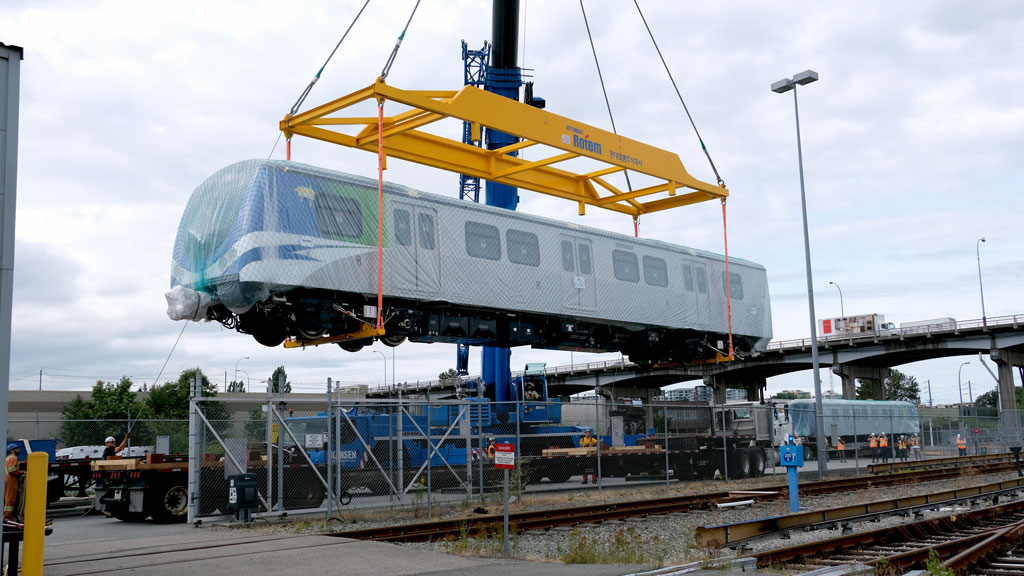VANCOUVER—Canadian municipal leaders are “pressing the emergency button” when it comes to public transit spending.
Federation of Canadian Municipalities (FCM)’s big city mayors’ caucus chair Mayor Mike Savage and co-chairs Montréal Mayor Valérie Plante and Saskatoon Mayor Charlie Clark released a joint statement urging the federal government to address transit operating shortfalls.
“As the pandemic stretches on and the Omicron variant challenges us all, 2022 farebox revenue shortfalls are threatening to derail and cut services, delay important capital projects, raise property taxes and have severe impacts on the long-term,” said the group.
The federation states that as Canadians work to emerge from the COVID-19 pandemic, cities continue to face its economic effects. The mayoral officials noted the farebox revenues that fuel the public transit people rely on – light rail, buses, subways and more – took massive hits. For 2022, the Toronto Transit Commission projects an operating shortfall of $561 million, in Edmonton it is a $53.7 million shortfall and in metro Vancouver, TransLink projects a $60 to $100 million deficit.
“Canada’s big city mayors are calling on the federal government, in partnership with provinces, to cover 2022 transit operating shortfalls,” said the federation. “We urgently need the partnership of all orders of government. This is the only way to avoid painful service reductions—which would wound frontline workers, marginalized communities, local economies, and Canada’s recovery. We all understand this service is essential for Canadians.”
The group argued public transit is a social, economic and environmental backbone for Canadian cities, especially for low-income residents, students and frontline workers.
“Even before Omicron, most large transit systems were forecasting serious ridership and revenue challenges for 2022,” said the group. “Cities have already made tough decisions, making cuts where they could, laying off staff, and raising property taxes. Yet the effects of the pandemic remain with us. With city budgets being finalized now, we simply cannot wait any longer.”
The federation is urging federal and provincial officials to commit to emergency operating support for transit systems, adding that the future of Canada’s public transit is at stake.
“Let’s get Canadians through this pandemic,” stated the federation. “Let’s work together to help the frontline workers, businesses and marginalized communities who disproportionately rely on transit. Let’s also make sure we’re supporting recovery.”
The group warned if emergency funds aren’t made available transit services could be cut, reducing mobility. If fees are increased, ridership could be discouraged, placing a burden on those without other options.
“We know all orders of government understand the stakes,” said the group. “Some provinces, such as Ontario and Quebec, have signalled they are willing to step up to this challenge. Municipal leaders thank all of our partners and we call for others to join us. Above all, federal leadership to address this national issue is essential – and it is urgent for this year. Their early pandemic operating support helped us keep transit services going strong. But pandemic impacts have stretched out longer than anyone forecasts, and now we urgently need to adapt.”



Recent Comments
comments for this post are closed